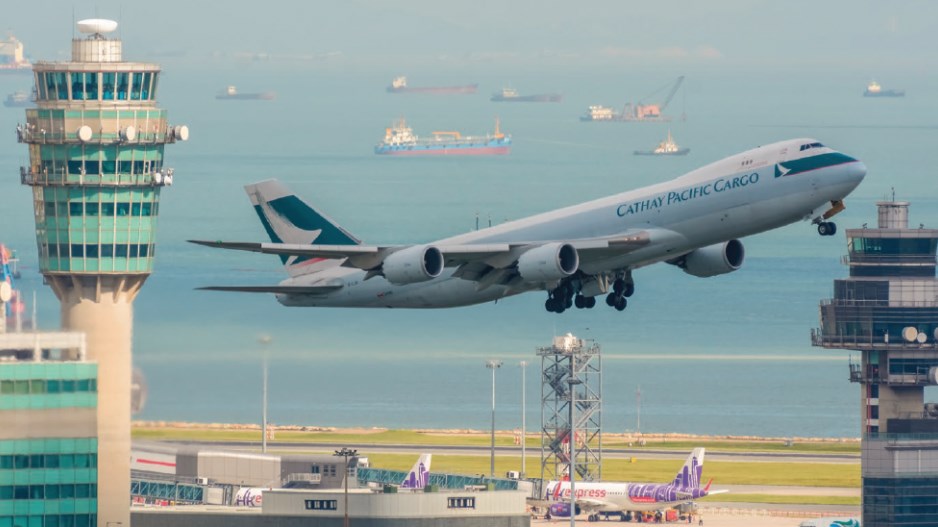China's proposed extradition law in Hong Kong has sparked fears that it could inflict heavy damage on the travel sector by discouraging business travellers from flying through the city.
And if passengers do look to avoid connecting through Hong Kong International Airport – the world’s eighth-busiest airport by passenger count – it could have ramifications for Vancouver, as the Vancouver-Hong Kong route is among the most popular international routes here, with three carriers providing as many as 31 weekly flights between the two cities.
For veteran Vancouver Chinese-Canadian journalist Victor Ho, the potential application of the proposed law, which would facilitate the arrest and extradition to mainlandChina of suspects in Hong Kong, has an immediate parallel that’s familiar to the Vancouver public.
“My first reaction when I heard about the [extradition] law was ‘Oh no, you are trying to copycat the Meng Wanzhou arrest in Hong Kong,’” said Ho, formerly the editor-in-chief of the Vancouver edition of Chinese-language newspaper Sing Tao Daily. “That’s the acute danger – American citizens, if this extradition law passes, would be the prime targets of Beijing if they want to warn the Trump government that they can also extradite people to China.”
Ho said the passing of such an extradition law would have an instant chilling effect on all forms of travel, including business travel, through Hong Kong, damaging the city’s ability to function as a global connections hub for commercial aviation.
Hong Kong Chief Executive Carrie Lam has suspended the proposed extradition bill’s tabling at legislature after millions of protesters took to the streets this month, demonstrating against what critics describe as an erosion of the city’s independent, common-law-based judicial system.
Bob Mann, analyst with New-York-based airline industry consultancy R.W. Mann & Co. Inc., said that while there aren’t exact precedents, there are similar cases where new laws altered travellers’ route patterns.
One such instance, Mann said, happened at Miami International Airport following the September 11, 2001, terrorist attacks, after U.S. authorities eliminated exemptions from clearance for passengers who were connecting through Miami without a visa to enter the United States.
“This drove many Europe-Latin America passengers to connect instead via Toronto, benefiting Air Canada at the expense of U.S., Latin American and European carriers that had traffic rights to and beyond Miami,” Mann said, adding that another similar scenario is the misuse of Interpol’s red notice, usually reserved for serious criminals, by some countries such as Russia and the United Arab Emirates to pursue political enemies.
If used the same way, China’s proposed extradition law could hurt Cathay Pacific Airways Ltd. and Hong Kong’s connecting traffic, Mann said, noting that it is possible that East Asian rivals such as Singapore (Changi Airport/Singapore Airlines) and Seoul (Incheon International Airport/Korean Air/Asiana Airlines) would be primed to pounce on the passenger traffic diverting away from Hong Kong.
Sean King, senior vice-president of New York-based consultancy Park Strategies and an affiliated scholar at the University of Notre Dame’s Liu Institute for Asia and Asian Studies, agreed with Ho that uncertainty around travellers’ status in Hong Kong if the extradition law passes would be a game-changer for many visitors, with Singapore the most likely replacement connecting point for many western investors.
“Anybody who’s been to the PRC [People’s Republic of China] is theoretically at risk,” King said. “Critics of [Chinese leader] Xi Jinping’s regime and/or those with mainland business disputes who visit Hong Kong should be on high alert if this bill becomes law.… Singapore’s its own master and is friendly with America, thus making it a far more attractive geopolitical basing option for many multinationals.”
Other observers, however, noted that the recent extradition dispute is just the latest manifestation of a trend that has been in place for several years now. Charlie Wu, managing director of the Asian-Canadian Special Events Association and organizer of the annual TaiwanFest in Vancouver and Toronto, said he had already stopped travelling to Hong Kong even before the outbreak of protests this month, mainly because of his role as a commentator – often critical of Beijing – on local Chinese-language media outlets such as Fairchild Radio.
“I don’t feel safe travelling to Hong Kong, and I have met people who have spoken to that effect, as well,” said Wu, whose TaiwanFest show featured a crossover billing with Hong Kong just a few years prior.
“These people don’t necessarily do a lot of business with China, but because Hong Kong is a hub where a lot of international finance takes place, people do use the city to connect with other markets internationally. What happens with the [extradition] law will determine whether they’d have to find another hub.”
Hong Kong authorities will have to consider not just the effect on commercial aviation, but also on the business reputation of the city as a whole, and even on the Chinese market.
“I think there’s about 70% of China’s [inbound] foreign investment going through Hong Kong,” Wu said. “That’s definitely going to decline if people don’t believe ‘one country, two systems’ is working out…. Long-term-wise, I think the Chinese government may come around to see the need to keep Hong Kong separate and leave it alone. That would definitely do wonders for people like me to go back to travelling through Hong Kong.” •




